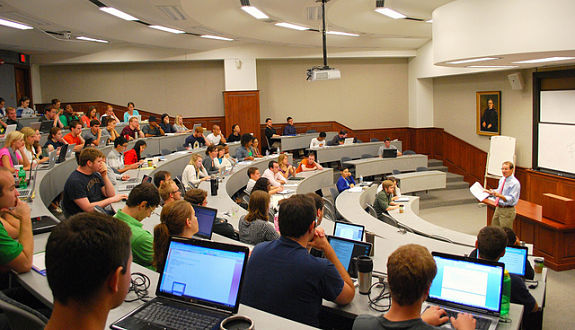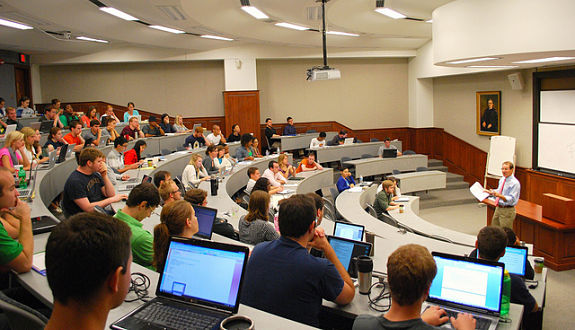
When you think of law school, the scene that comes to mind might well be the beginning of the movie The Paper Chase, where a law professor calls on a student the first day of class and ruthlessly interrogates him about a case he didn’t know he was supposed to read. Law school professors are notorious for “cold calling” students — essentially, calling on individuals at random to answer questions without waiting for students to raise their hands. It’s a source of stress, especially when a lot of new law students are used to seminar-style classes in undergrad where they could pick up participation points by giving their opinion about a novel they looked up on Sparknotes that day. Cold calling takes away so much of your control over how and when you participate, so you have to be on your guard all the time. Now a few weeks into law school, I have been cold-called, and I’ve also observed it in my classes almost every day. With that experience in mind, I can answer some of the most common questions people have about professors cold calling in law school.
Why is cold calling such a big deal in law school?
I see three related reasons why people care about cold calling: (1) some professors can be very demanding of students they call on, and respond harshly to students who aren’t prepared to answer their questions; (2) students feel they’re being judged by the professor and their classmates by the way they answer questions; and (3) some students feel that their class performance is an indication of how they will rank on the curved final exam.
Do all law school classes cold call?
Only two out of three professors for my core classes currently use cold calling as a way of teaching, and none of them are as sadistically bent on embarrassing students as the bowtie-clad Professor Kingsfield in The Paper Chase. Some professors will ask just one question when they call on a student, and other professors go back to the same student over and over to answer pointed questions on assigned cases, or on hypothetical situations that are similar to the assigned cases. But in general, there are still many instances where professors allow students to raise their hand and answer questions by choice.
What is it actually like to be cold called?
I was called on in Civil Procedure and asked about the facts of one of the assigned cases and the issue the court was appraising in that case. After a few more questions about the same case, I was asked how I would apply a test discussed in a previous court case, to the current case under discussion. I took an uncomfortable amount of time to scan my notes for the previous case that discussed the test, while the 90 other people in my class waited for me to respond. I finally gave up looking for the answer in my notes and applied the three parts of the test the best I could from memory. I got 2/3 parts of the test, but stumbled through another awkward space of time while the professor shook his head at the last part of my response, and eventually called on another student. I later realized that, like the poor soul from The Paper Chase, I wasn’t speaking loudly enough for the professor to hear the last part of my answer. In sum, you should be prepared to analyze the cases you read for class without relying on your notes alone. And once you respond to the professor, you need to speak clearly enough for everyone to hear.
Ok, so I didn’t prepare for class. What can I do to avoid professors calling on me?
Some professors will allow you to pass on a question if you’re not prepared for class. And in some law school classes, it also appears that professors mostly cold call students who don’t participate on their own. However, my impression so far is that professors and other students respect those who do their best to answer a question, even when they don’t have a perfectly formulated response. And in any case, other students don’t pay much attention to the answers that their classmates provide when they’re called on, because the rest of the class is too busy trying to follow along with the material themselves.
————
There are some elements of law school that will be familiar to undergraduate students, but cold-calling is one that may take some time to get used to. However, a bright spot about cold calling, for myself and just about every character in a movie about law school, is that the stress of cold-calling disappears once you’ve had the experience firsthand.




